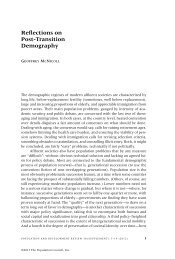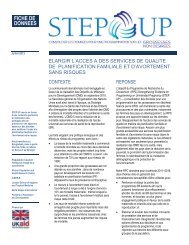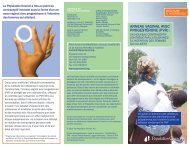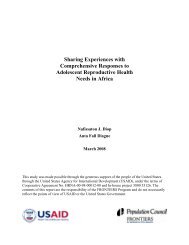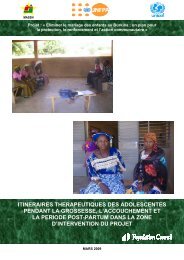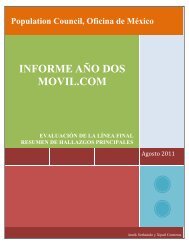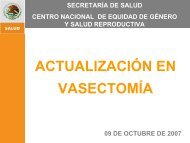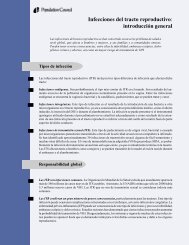Community Health Volunteer's Training Manual - Population Council
Community Health Volunteer's Training Manual - Population Council
Community Health Volunteer's Training Manual - Population Council
Create successful ePaper yourself
Turn your PDF publications into a flip-book with our unique Google optimized e-Paper software.
Module 3 The Work of the <strong>Health</strong> Committee<br />
Unit 4<br />
Supervision of Volunteers<br />
170<br />
Introduction<br />
Unit four will discuss the two major types of supervision. Participants will also learn the<br />
importance of supervision and be able to conduct facilitative supervision of volunteers. The<br />
unit will also discuss practical ways of promoting the welfare and security of the CHO and<br />
volunteers.<br />
In most Ghanaian languages we say, “the one cutting the pathway does not see how straight<br />
or crooked it is. It is only those who follow behind who can tell whether it is crooked or not”.<br />
Thus, an observer’s comments and a person’s own evaluation will help him make necessary<br />
adjustments or corrections to the path. This is the essence of supervision. CHOs have a<br />
role of supervising VHCs, who in turn have a role in supervising CHVs. In this Unit we will<br />
only talk about the VHC supervising the volunteers and discuss their role in promoting the<br />
security and welfare of the CHO and volunteers.<br />
Traditionally, supervision means looking for mistakes to correct them. The emphasis has<br />
always been on the past and what went wrong and not on the future and what can be done to<br />
shape it.<br />
A new way of supervising our work processes is called Facilitative Supervision. Facilitative<br />
Supervision is used to improve upon the quality of our services continuously. It is necessary<br />
that VHCs and CHVs know about facilitative supervision.<br />
VHCs cannot supervise what they do not know. This unit will additionally, discuss practical<br />
ways in which common community health problems can be tackled before they are referred<br />
to the health facility.<br />
Unit objectives Unit Topics<br />
By the end of this Unit participants will be able to:<br />
1. Discuss traditional supervision and facilitative supervision<br />
2. Supervise the activities of volunteers and give feedback<br />
3. Explain the types of supervision and its importance<br />
4. Discuss practical ways of promoting the welfare and security of<br />
the CHO<br />
5. Discuss practical ways of motivating volunteers<br />
Key words and Phrases:<br />
Facilitative, supervision, mentoring, communication<br />
1. Supervision and its importance<br />
2. Promoting the welfare of CHOs<br />
3. Motivating volunteers



